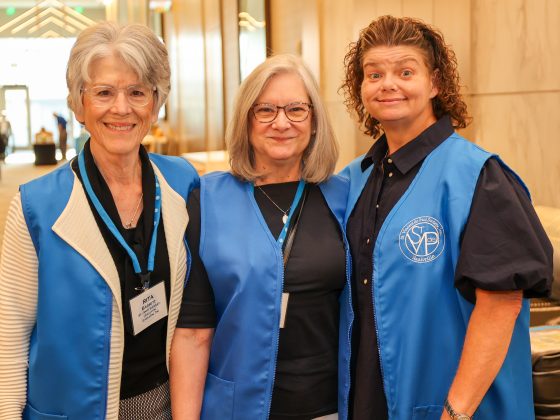St. Vincent taught that we are called to submit entirely to God’s will; indeed, to make His will our own. Even when we seek to discern the best way to help each neighbor, we are called to fulfill God’s will – to make our feeble human judgment His instrument in that particular circumstance.
Sometimes it is easy to know His will, because He stated it explicitly: go and do likewise, I have given you a model to follow, serve the least of us, turn the other cheek, do unto others, etc. We can further learn God’s will by the example and words of our Vincentian Saints and Blesseds.
But ours is a “vocation for every part of our lives”. [Rule, Part I, 2.6] How can we know His will when it seems less obvious? Are we in the right place? Are we in the right jobs? As a young man, Blessed Frédéric asked himself such questions, wondering whether “exterior circumstances” might be a sign of God’s will that he should not ignore, for “a crowd of circumstances independent of my will assail me, pursue me, turn me aside from the path I have laid out for myself.” [Letter 67, to Falconnet, 1834]
There is a short answer, of course: prayer. In prayer we place our needs before God, we ask for Him to make His will known to us. Yet prayer itself requires first that we trust in Divine Providence, that we are willing to accept that “He knows what is good for us better than we do, what He sends us is best, even if it is disagreeable to nature and contrary to our wishes,” as St. Vincent once explained. [CCD VII:255]
St. Vincent taught that we should accept everything that happens in this world, good and bad, “because God wills it, since He sends it … peace of mind will be one of the many great benefits that will result from [this].” [CCD VI:493] Our doubts are removed, in other words, when we choose to remove them, to face life with what Vincent often called “holy indifference”, letting the day’s own troubles be enough.
It is easy to confuse seeking God’s will with seeing the future, rather than “go[ing] in simplicity where merciful Providence leads us, content to see the stone on which we should step without wanting to discover all at once and completely the windings of the road.” [Letter 136, to Lallier, 1836]
Our lives are often better understood in reverse, like the early chapters of a mystery novel whose clues we understand only when going back to re-read them after we begin to surmise the conclusion. Despite his youthful doubts, Frédéric would later write that he had become “more than ever convinced of my vocation, a conviction reinforced by all the events of recent years.” [A Heart with Much Love to Give, 144]
The certainty that we are where God wills us to be is perhaps less important than the comfort of knowing that it cannot be otherwise, which enables us to trust that “you are serving God very effectively where you are. If it does not seem so to you, all the better.” [CCD IV:364]
Contemplate
Am I uncertain of God’s will, or am I distracted by my own will?



